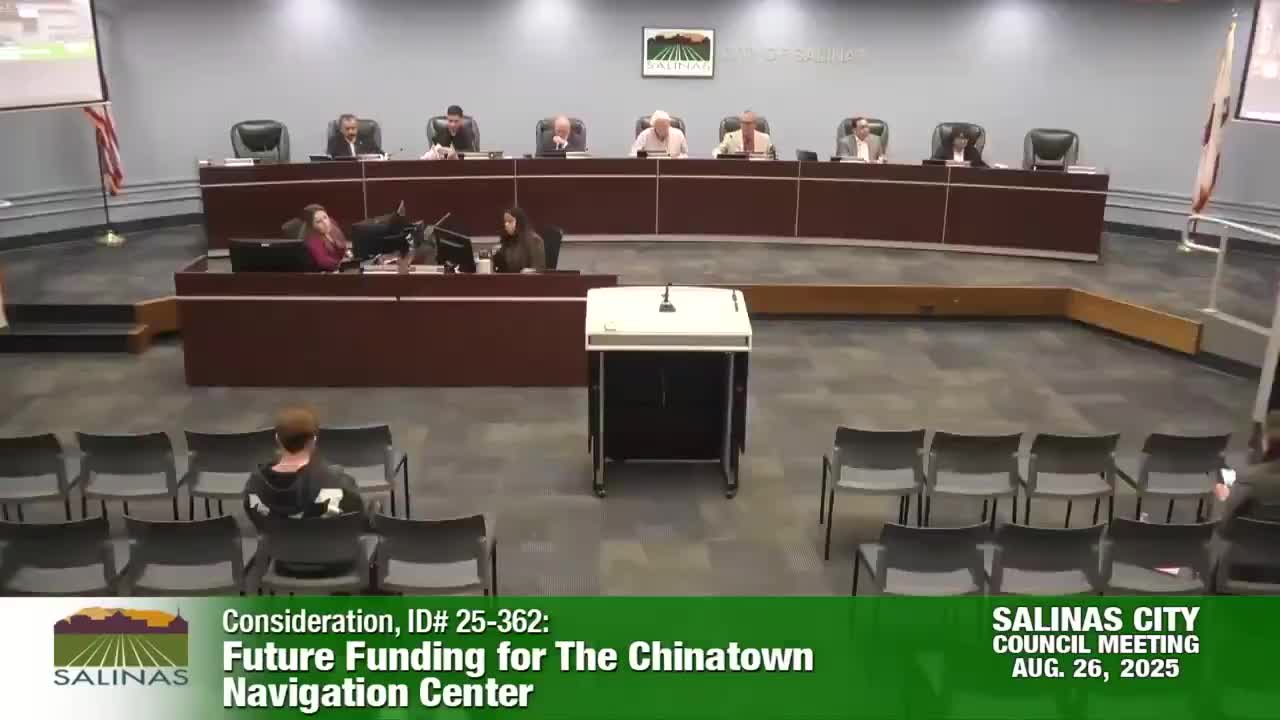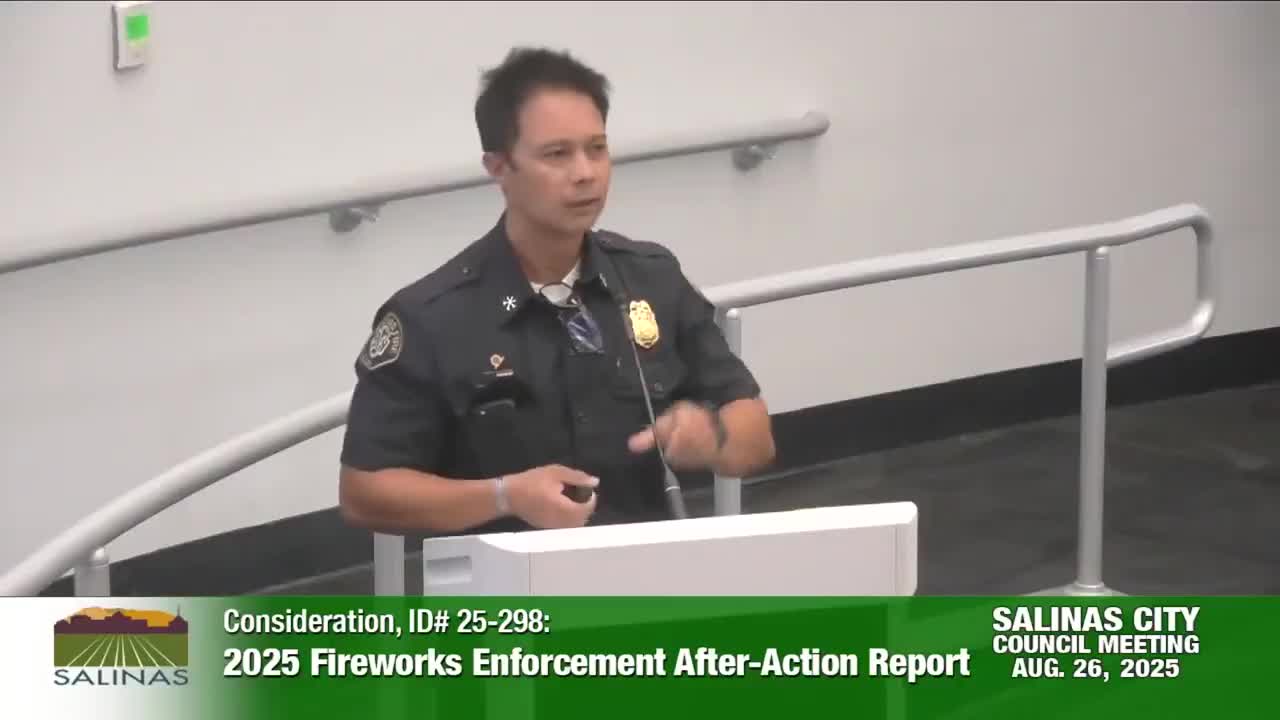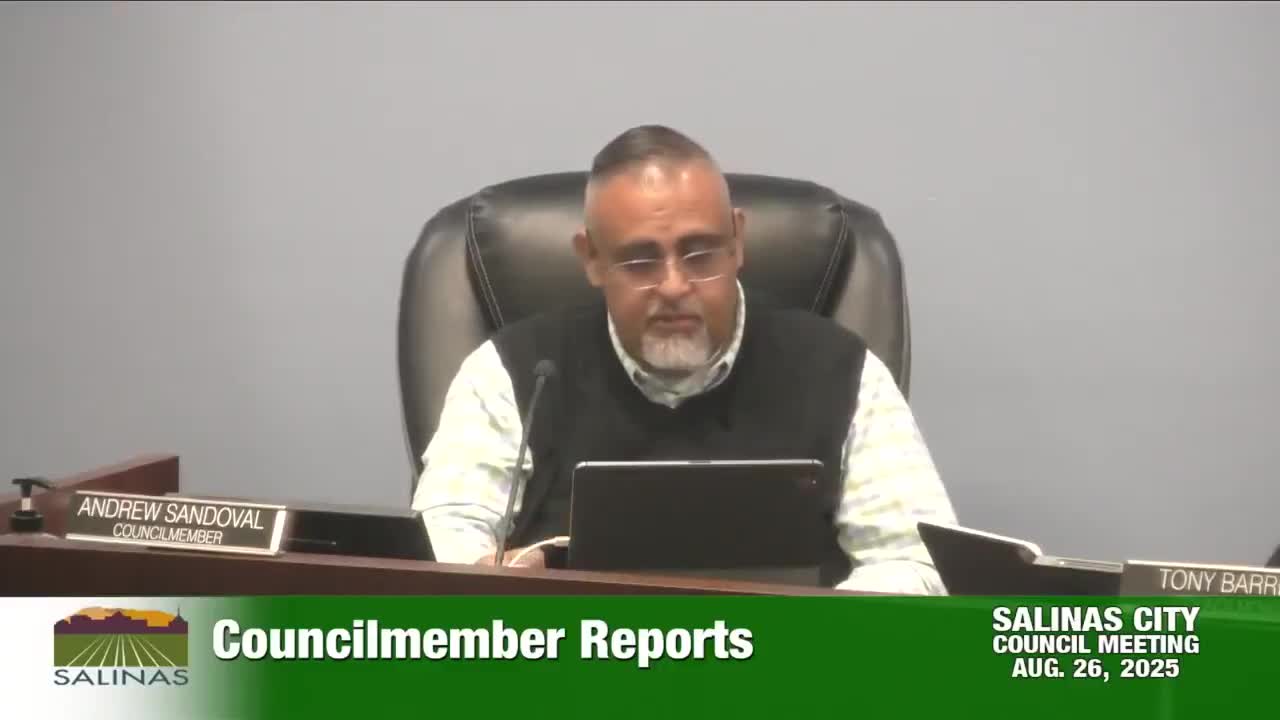Article not found
This article is no longer available. But don't worry—we've gathered other articles that discuss the same topic.

Salinas to fund Chinatown Navigation Center through March if county adds $200,000; council taps contingency for shortfall

Salinas reports fewer July 4 structure and vegetation fires after expanded fireworks enforcement; 96 citations issued

